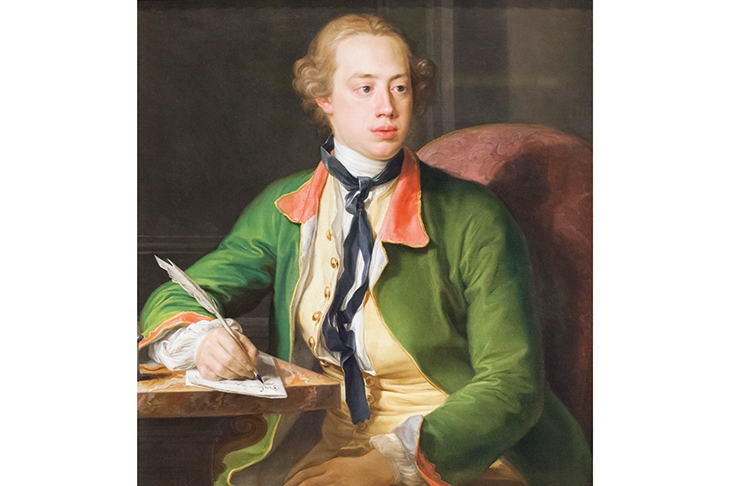If you associate Lord Salisbury more with a pub than with politics, here is Andrew Gimson to the rescue, with succinct portraits of every prime minister to have graced — or disgraced — No. 10 to date. You will find no trace of waspish mockery in his book. In a time when heroes are constantly being debunked, its kindly, intelligent tone appears refreshingly old-fashioned.
The flamboyant Robert Walpole makes for an ideal scene-setter. In 1721 he invented the office of prime minister and held it for longer than any of his successors — a full 21 years. Plump, affable and crude, with an astute business sense, he managed to amass a fortune by ingratiating himself with the first two Hanoverians and getting out of the South Sea Bubble in the nick of time. Rogue though he was, his shameless love of luxury, hunting and women — his mistress Molly was 25 years his junior — makes him infinitely more likeable than our priggish present- day leaders.
Even Lord North appears soft and cuddly. He may have lost the American colonies through bungling mismanagement, but he was so witty that all is forgiven. When asked to identify ‘that plain looking lady’, he replied amiably that she was his wife. His embarrassed companion tried to recover by saying: ‘No, no. I meant the dreadful monster sitting next to her.’ ‘That, sir, is my daughter,’ North replied. ‘We are considered to be three of the ugliest people in London.’ He died in 1792, fearing his reputation would be wrecked by the loss of America. Fortunately for his ghost, history is not taught well in schools these days, so he has no reputation whatever. As far as I know, he doesn’t even have a pub named after him.
Gimson, a political journalist and former parliamentary sketchwriter for the Daily Telegraph, has a deep understanding of his subjects and his pithy prose enlivens even the dullest PMs. Well, perhaps Lord Goderich induced a fleeting yawn, but he only takes up three pages before the Duke of Wellington makes his dramatic entrance.
The Iron Duke may have been a great military leader, but he was a terrible prime minister. Yes, he defeated Napoleon; but his hatred of the French was matched by his revulsion at the prospect of an extension of the franchise. He was perpetually fighting duels in which neither he nor his opponent hit their target.
And what does Gimson make of the Iron Lady — who inspired more admiration and loathing than any other prime minister? Margaret Thatcher privatised almost everything, sold off council houses, diminished the trade unions and went to war over the Falklands. Ever chivalrous, Gimson sees her unpopularity stemming not only from being a woman but from her
patriotism, which was somehow too obvious, her voice, which sounded highly artificial, her clothes, which to bohemian eyes seemed to consist of a series of dreary blue suits, and her whole air of suburban gentility.
For the novelist Ian McEwan, however, ‘it was never enough to dislike her. We liked disliking her’.
The qualities which unite our prime ministers, according to Gimson, are courage, luck and a hunger for power. British governments may not be much good, he reasons, but at least we can get rid of them.
This spirited blend of politics and anecdote is wonderfully complemented by Martin Rowson’s Georgian-style caricatures. Tony Blair’s tombstone teeth embedded in Iraq are unforgettable.






Comments